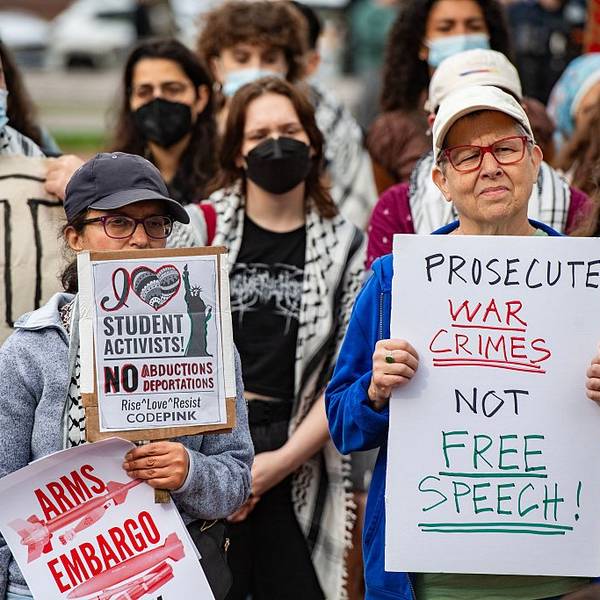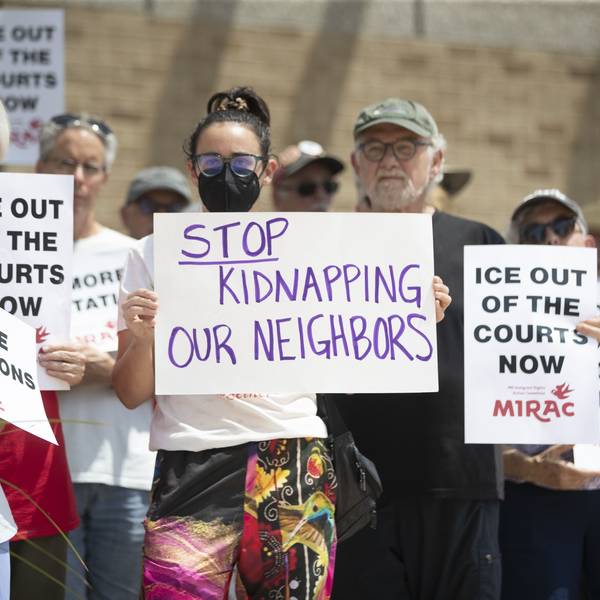After a federal judge in Hawaii temporarily halted President Donald Trump's third travel ban Tuesday afternoon, a second judge in Maryland issued a similar ruling Wednesday morning, calling the latest iteration the "inextricable re-animation of the twice-enjoined Muslim ban."
The latest ban, which was scheduled to take effect Wednesday, attempted to make permanent the restrictions targeting most of the Muslim-majority nations from the past two versions while also adding rules for travelers from Chad, North Korea, and Venezuela.
Judge Derrick K. Watson of Hawaii wrote (pdf) in his 40-page decision that Trump's third executive order is "simultaneously overbroad and underinclusive," "does not reveal why existing law is insufficient to address the president's described concerns," and "contains internal incoherencies that markedly undermine its stated 'national security' rationale." Watson's ruling impacted restrictions on travelers from Chad, Iran, Libya, Somalia, Syria, and Yemen, but not those imposed on travelers from North Korea and Venezuela.
In Maryland, Judge Theodore D. Chuang, as the Washington Post reports, "issued a somewhat less complete halt on the ban than his counterpart in Hawaii did a day earlier, blocking the administration from enforcing the directive only on those who lacked a 'bona fide' relationship with a person or entity in the United States, such as family members or some type of professional or other engagement in the United States."
Chuang's ruling, however, reportedly cited the president's comments on Twitter and during the campaign as evidence that the order was an unconstitutional ban on Muslims. He asserted that the order made "certain subjective determinations that resulted in a disproportionate impact on majority-Muslim nations" while offering "no evidence, even in the form of classified information submitted to the Court, showing an intelligence-based terrorism threat justifying a ban on entire nationalities."
Rights groups celebrated the pair of rulings ahead of a #NoMuslimBanEver March they planned to take place in Washington D.C. on Wednesday.
New York Immigration Coalition executive director Steve Choi said blocking the third ban confirms "it is un-American to discriminate against people based on race or religion," adding, "we will not make this country safer or greater by defying the founding principles on which it was built: liberty and justice for all."
"We're glad, but not surprised, that President Trump's illegal and unconstitutional Muslim ban has been blocked once again," said Omar Jadwat, director of the ACLU's Immigrants' Rights Project, after the first ruling. The ACLU was one of the organizations that launched the legal challenge in Maryland.
"Is anyone else seeing a pattern here? Muslim ban issued, courts strike it down," the National Immigration Law Center tweeted Tuesday, later adding: "The third Muslim ban may be blocked, but the fight continues. Join a #NoMuslimBanEver rally or vigil tomorrow!"
In addition to the D.C. rally, several rights organizations have banded together to create a campaign and website to oppose the ban, which includes a search tool to find events across the country.




